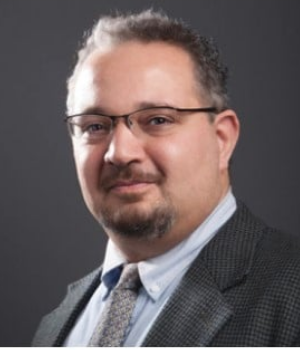Queen’s University researchers have gained recognition for the discoveries they have made in medicine, engineering, and the sciences; innovations that have improved the lives of people around the world. To make sure that the university and the public continue to benefit from this work, Queen’s Partnerships and Innovation (QPI) promotes the discoveries of university researchers who have assigned their intellectual property to Queen’s and whose work is ready for licensing and commercial application. QPI leads the commercialization processes, including the protection of the intellectual property, the creation of strategies to further its development, the search for funders, partners, and licensees, the negotiation of terms, the management of relationships, the collection of licensing and royalty revenues, and their disbursement to inventors.
The Technology Development Pilot Project (TDPP), which Queen’s Partnerships and Innovation (QPI) launched with a call for proposals to be submitted in July 2021, awarded funding in November 2021 to three research projects, has yielded promising results.
The Pilot Project, enabled by the Vice-Principal Research Portfolio (VPR), and administered by QPI, aimed to advance selected inventions with commercial potential to position them for other funding opportunities and make them attractive to potential licensees or investors.

Sam Basta, Professor in the Department of Biomedical and Molecular Sciences (DBMS) at Queen’s, was one of the recipients of TDPP funding. The funding enabled Dr. Basta to continue developing a cancer immunotherapy invention co-invented with fellow DBMS professor, Dr. Katrina Gee.
“When we reviewed TDPP applications relative to the criteria for funding, Dr. Basta’s invention and proposal stood out as very promising,” says Dr. Michael Wells, Partnerships Development Officer with QPI, whose portfolio includes support for Life and Health Sciences researchers and innovators and external relationship-building. “The preclinical results of the cancer vaccine were very compelling, showing a powerful long-term effect on preventing growth of cancer.”
“The research looked at developing ways to boost how cancer specific immune cells recognize tumours and to develop immune memory to the tumour in cases where tumours relapse after initial interventions,” says Dr. Basta, who supervised the project led by Kyle Seaver, PhD candidate. “The TDPP funding helped us to determine if we could develop new and more effective models to promote immune recognition of a developing tumour and to eliminate them after they develop.”
In simplistic terms, a whole tumour cell vaccine was developed and administered in two doses to laboratory mice. The mice were monitored three times a week during the duration of the experiment. Compared to the unvaccinated mice, the vaccinated mice had an increase in protection and survivability against the tumour. The mice that remained tumour-free were rechallenged with a tumour injection and these mice had no observable tumour 30 days after tumour rechallenge.
“The project indicates that the combination of the adjuvants, IL-27 & TLR-ligand, in a LyUV tumour cell vaccine can provide protection as well as promote potential memory responses,” says Dr. Basta. “Based off this data we can conclude that the vaccine preparation is effective against an aggressive tumour melanoma model in preclinical studies.”
On November 24, 2022, Dr. Basta and his team received confirmation that the patent application for this invention, drafted by QPI and filed in May 2021, was published by the World Intellectual Property Organization (WIPO).
The research team was not only able to confirm and expand on data that confirms their current patent application, but they were also able to obtain additional data on a new avenue which could allow for the application of a second patent on a different exciting technology. QPI’s Michael Wells is helping Dr. Basta’s team explore this new avenue.
“The Technology Development Pilot Project funding was critical for us to confirm the initial findings that we were seeking to patent for cancer immunotherapy. The funding allowed us to recruit research students, design and perform experiments to address key questions that test the validity of the findings,” says Dr. Basta.
Readers interested in licensing or learning more about the technology Dr. Basta has developed should contact Michael Wells at michael.wells@queensu.ca.
 About Vice-Principal Research
About Vice-Principal Research